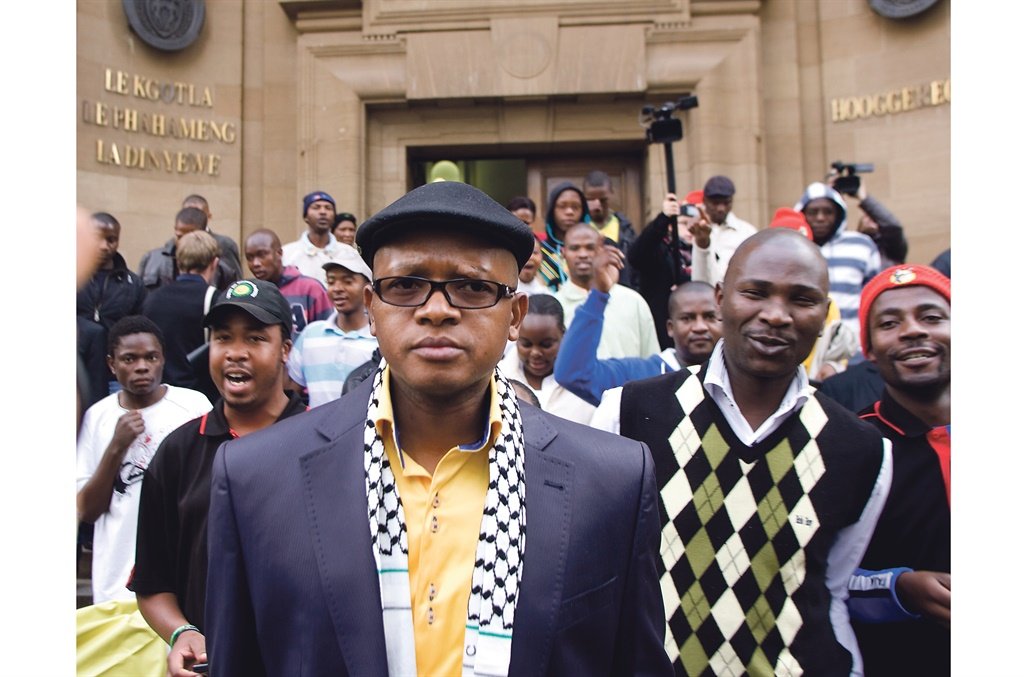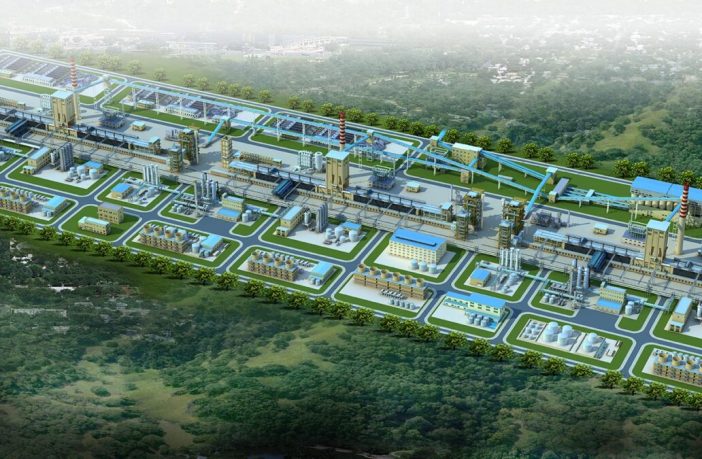- The Herd Nature Reserve, Living Limpopo and the Centre for Applied Legal Studies (CALS), represented by All Rise Attorneys for Climate and Environmental Justice, have launched a review application in the High Court in Polokwane.
- The three organisations are asking the Court to review and set aside an environmental authorisation which relates to the major development site of the Musina-Makhado Special Economic Zone, also known as the MMSEZ.
- This is their story.
The Special Economic Zone was designated in 2017, with the Limpopo provincial government identifying two sites to the north and south of Musina for development and industrialisation. The operating entity, the MMSEZ SOC (state-owned company), is wholly owned by the Limpopo Economic Development Agency (LEDA) – an agency of the same provincial government department responsible for granting environmental authorisation.
The MMSEZ is projected to generate over one billion tons of CO2e over its lifetime, or more than 10% of South Africa’s annual carbon budget under its Paris Agreement commitments. The scale of the development has the potential to radically alter the environmental, social and economic landscape of the Vhembe Biosphere Reserve region, and the risks demand considered decision-making around environmental authorisation.

The CEO of the Musina-Makhado Special Economic Zone (MMSEZ) State-Owned Corporation (SOC), Lehlogonolo Masoga of the Limpopo Economic Development Agency (LEDA). Image credit: Muntu Vilakazi
Many organisations – including All Rise, Living Limpopo and CALS – have repeatedly raised concerns about the feasibility and impact of the MMSEZ on this sensitive region and its vulnerable rural communities. Efforts to engage meaningfully with the government agencies sponsoring the project through the public participation process have proved futile. The final Environmental Impact Assessment (EIA) Report issued in February 2021 by Delta Built Environment Consultants did not recommend authorisation. In spite of this, the Limpopo provincial government proceeded to appoint another environmental assessment practitioner to issue a revised final EIA Report in September 2021, which paved the way for it to grant itself authorisation in February 2021.
CALS and All Rise, along with several other civil society organisations promoting environmental and social justice, brought internal appeals against the decision, all of which were dismissed in July last year. We have therefore approached the High Court to review and set aside the environmental authorisation and instead uphold our appeal. We argue that the EIA, appeal, and public participation processes needed to be more procedurally fair and properly consider the impacts on, amongst other things, climate change and water security.
The review application includes two expert reports. The first, by Dr Louis Snyman from CALS, examines the potential devastating consequences of such a high-impact development without proper consideration of spatial planning. These include the loss of biodiversity, worsening already aging infrastructure and water supply problems, droughts, flooding, pollution and wetland destruction. The second report from independent political ecologist, Dr Victor Munnik, focuses on the dangerous impact of the water supply plans to meet the vast water requirements of the MMSEZ in this already water-stressed region.
“The Vhembe region contains some of the most biodiverse and culturally sensitive areas in the country, including the northern Kruger National Park, Mapungubwe World Heritage Site and other areas like the Herd Reserve, which are largely unprotected,” says Dr Louis Snyman, head of Environmental Justice at CALS. “This is already a water-scarce area, and failing to properly consider spatial development could have devastating consequences.”
“Living Limpopo took to the street markets of Thohoyandou to speak to the people who trade in indigenous natural commodities wild-harvested in the area around the MMSEZ, as well as to smallholder farmers and people living in nearby villages,” says Lauren Liebenberg. “Few had even heard of the MMSEZ. Those who had were sceptical. All want their voices heard. The Vhembe is our birthright. It has been sold without permission.”
“The right to an environment that is not harmful to health or wellbeing is guaranteed in the Constitution,” says Kirsten Youens from All Rise. “This is not only about protecting the physical aspects of the environment but the social, cultural and spiritual attributes. The MMSEZ is a massive development that will extensively impact all aspects of the environment. It will result in a severe setback to efforts to fight the climate crisis and render South Africa in breach of our international obligations.”
The three organisations thank Legal Aid South Africa for their financial support in this matter, in funding the review application.
Author: Bryan Groenendaal
















1 Comment
Sadly the gains made in environmental protection since 1994 have been eroded to a shell of the Intentions that Pes Nelson Mandela had which resulted in the Consultative National Environmental Policy (CONNEP).The process (CONNEPP) decided on by stakeholders produced the Green and White Papers on Environmental Management out of which flowed the National Environmental Management Act (NEMA). It has subsequently been watered down since Mbeki’s time culminating in Mantashe calling it colonialism! I have personal experience of how “consultants” in the EIA process act as counsel for the defense ie fighting the community tooth and nail for a favourable outcome for the developer. I have evidence of how the Authorising Body, ie provincial Department of Environmental Affairs, payed no heed or was too incompetent to recognise gross flaws in the EIA. Paid no attention to objections (including points on the manipulation of the consultation process ie that NO record of the proceeds of the public participating meeting was included). How the biased EIA was defended by the MEC and appeals rejected. There certainly could be other examples found. In the Vhembe case a different consultant was simply found to over rule the consultant that did not give a favourable outcome. This project is in the news due to its high profile. However many others don’t make the news. The authorising authority depends on a lack of money on the side of those opposing the development in order to pursue the issue in a court of law. They have the funds to defend the EIA in such a case and when they lose it is no skin off their teeth. Easy come easy go of taxpayers money. The EIA process as it stands now is a menace to the protection of our Environmental Rights per Section 24 of the Constitution. Lastly, an unbiased consultant is soon known and avoided by developers. Also, when a developer approaches the Department for advice as to process and names of possible consultants I leave it up to you to deduce the outcome….